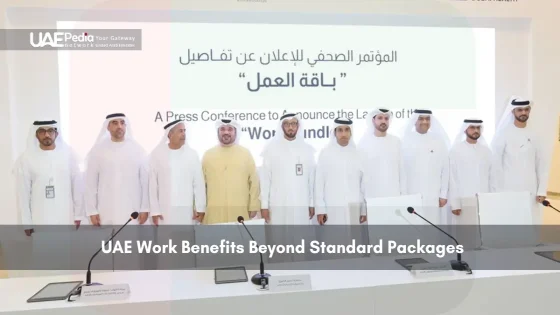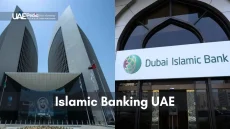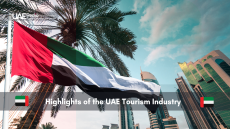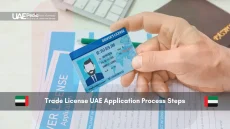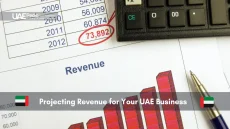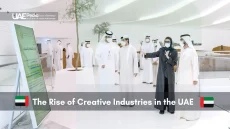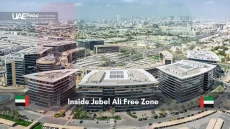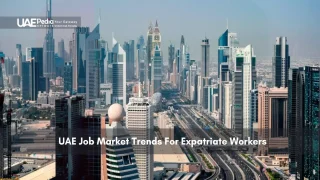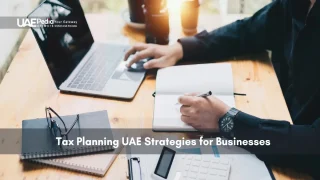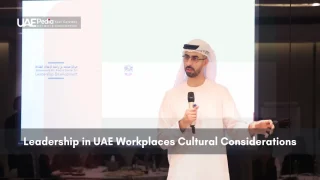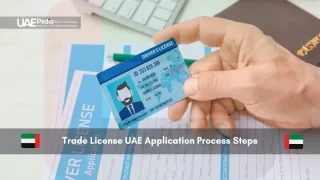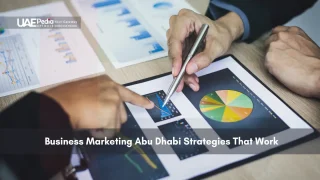What if a city could transform from desert sands to a global commercial powerhouse in just 50 years? Dubai’s skyline – where futuristic towers meet traditional souks – tells a story of ambition turned reality. This isn’t just about luxury hotels or record-breaking projects; it’s about creating an ecosystem where 90% of companies report faster expansion than in their home markets.
Tax-free zones act like rocket fuel here. Imagine keeping 100% of your profits while operating in a region connecting 2 billion consumers. That’s why tech startups and green energy innovators flock to areas like Dubai Internet City – modern oases offering streamlined registration and 0% corporate tax for decades.
We’ve watched companies triple their reach using smart approaches tailored to local culture. Take the logistics firm that leveraged Jebel Ali Port’s world-class infrastructure to dominate Middle Eastern trade routes. Or the health-tech startup that partnered with Emirati licensing experts to navigate regulations while preserving full ownership.
STATISTICAL EVIDENCE:
Jebel Ali Port handled 13.7 million TEU in 2021, underscoring its status as the region’s largest container hub and a strategic choice for scale-oriented logistics operations. Ref.: “DP World. (2022). DP World Reports Strong Volume Growth of 9.4% in 2021. DP World.” [!]
- Free zones offer 100% foreign ownership, multi-year tax holidays, and sector-specific regulatory frameworks to support rapid scalability.
- Strategic location provides access to emerging markets across Africa and Asia
- Proven methods for scaling ventures while respecting cultural nuances
Why Dubai Became a Global Business Powerhouse
Imagine a crossroads where three continents shake hands under the desert sun. This isn’t geography poetry—it’s daily reality here. Positioned between Asia’s manufacturing giants, Europe’s financial centers, and Africa’s booming consumer markets, the city becomes your shortcut to 65% of the world’s population.
Dubai’s Location Advantage for Global Reach
Four-hour flights reach 2 billion people. Eight-hour flights cover 80% of global GDP zones. That’s why logistics titans like Maersk use Jebel Ali Port as their Middle Eastern HQ—moving 13.7 million containers yearly. The secret? Daylight overlaps with Tokyo and London markets let you trade 18 hours straight.
Digital highways match physical ones. Dubai Internet City’s fiber-optic networks let startups video-call Nairobi suppliers while uploading designs to Shanghai factories—all before lunch. Customs clearance through Dubai Trade’s digital platform now averages just 3.5 hours per shipment, thanks to AI-driven logistics enhancements.
Infrastructure and Market Connectivity
Dubai International Airport welcomed 92.3 million passengers in 2024, reflecting its continued global dominance. Ports link to 150+ global destinations. But here’s the kicker: Over 90% of UAE-based logistics firms now integrate AI into their trade and customs workflows. These tools predict shipping delays, calculate tariffs, and even suggest alternate routes during sandstorms.
- Same-day cargo flights to emerging markets like Lagos and Mumbai
- Blockchain systems that slash cross-border payment times from days to minutes
- Free zones offering industry-specific labs for tech prototyping
Dubai International Airport welcomed 92.3 million passengers in 2024 and links 272 destinations across 107 countries. Aligning distribution schedules with DXB’s network extends same-day reach and supports high-frequency cargo flows. Ref.: “Dubai Media Office. (2025). Dubai Airport Records Highest Annual Traffic in 2024 Celebrating a Decade as the World’s Busiest International Airport. Dubai Media Office.” [!]
Risk management here means more than insurance. One fintech firm cut fraud losses 40% by using Dubai’s real-time trade data hubs. Their secret sauce? Local partners who decoded regional payment habits into actionable algorithms.
Building Sustainable Business Strategies in Dubai
What if your profits could grow faster than your team? Here’s the twist: 83% of ventures in special economic zones report higher margins than their home markets. The secret lies in smart financial structuring – like choosing between mainland operations (9% corporate tax) and free zones (0% for 50 years).
How Free Zones and Tax Planning Drive Growth
One e-commerce company slashed costs 30% by shifting operations to Dubai CommerCity. Their playbook? Combining free zone ownership with mainland trading licenses. “We kept full control while accessing tax exemptions,” their CFO told us. Similar stories emerge daily:
- Tech startups using Dubai Multi Commodities Centre to eliminate import duties
- Consultancy firms retaining 100% profits through free zone LLC structures
- Manufacturers blending mainland VAT registration with free zone production hubs
Recent shifts matter. Since 2023’s 9% corporate tax introduction, savvy accounting teams use hybrid models. A logistics firm we studied cut liabilities 22% by routing transactions through free zones. Their trick? Separating warehousing (taxable) from licensing (exempt) operations.
Three trends redefine success here:
- AI-driven accounting platforms predicting tax impacts in real-time
- Service innovation hubs helping companies adapt compliance workflows
- Cross-border payment systems reducing transaction costs by 17-35%
Your move? Match your operational map to fiscal landscapes. One renewable energy company doubled R&D budgets by optimizing their free zone setup – proof that smart structuring fuels sustainable growth.
Navigating Financial Compliance and Corporate Tax
What if every dirham could work smarter, not harder? Since June 2023, UAE mainland businesses have been subject to a 9% corporate tax, a rate still competitive globally, still lower than most G20 nations. But here’s the twist: free zones keep their 0% sweetheart deals, creating a puzzle where smart players save millions.
“Discover More: free zones“
Mastering VAT and Corporate Tax Compliance
VAT rules here feel like a desert mirage—clear up close, but tricky from afar. All companies exceeding AED 375k ($102k) in annual sales must register. Miss the 28-day filing window? That’s a 2% penalty plus interest. One e-commerce firm we know automated its invoicing using local cloud platforms, cutting processing time by half.
- Mandatory IFRS audits for mainland entities with over AED 50M revenue
- Real-time VAT tracking through FTA’s EmaraTax portal
- Dedicated compliance units in free zones offering bilingual support
The mandatory VAT registration threshold is AED 375,000 in taxable supplies or imports during any rolling 12-month period (or the next 30 days). Monitoring turnover against this limit prevents non-compliance and unlocks timely input-VAT recovery. Ref.: “Federal Tax Authority. (2023). VAT Registration Threshold Guidance. Federal Tax Authority.” [!]
Smart Corporate Tax Planning and Structuring
Think of tax planning as your financial GPS. Hybrid structures are trending: A tech startup recently split operations between Dubai Media City (0% tax on IP licensing) and mainland offices (9% on local contracts). Their playbook? Using industry-specific resources like DMCC’s trade analytics tools to forecast liabilities.
Three moves winning today:
- Aligning fiscal years with IFRS reporting cycles
- Leveraging free zone R&D incentives to offset mainland taxes
- Automating transfer pricing documentation with AI platforms
As one CFO told us: “Efficiency isn’t about speed—it’s syncing payments with cash flow rhythms.” Their secret? Monthly “tax health checks” using government-approved software, turning compliance into competitive edge.
Financial Planning and Growth Forecasting in Dubai
Ever watched sand artists sculpt intricate castles in minutes? That’s what sharp financial planning does here – turning granular details into resilient structures. We’ve seen ventures triple their runway by blending local insights with global growth models.
Take the logistics startup that mapped cash flow against regional shipping cycles. Their secret? A 24-month projection model updated weekly. Result? 140% revenue growth while competitors scrambled during peak seasons. Numbers don’t lie – 78% of investors here prioritize ventures with dynamic forecasting tools over static spreadsheets.
Building Robust Financial Projections
Three rules separate dreamers from doers:
- Anchor projections to local market rhythms (think Ramadan sales spikes)
- Build contingency lines for sandstorm delays or currency shifts
- Use hybrid models blending AI predictions with human expertise
One e-commerce firm we studied cut inventory costs 18% using real-time sales data from Dubai’s feasibility study guide. Their CFO grinned: “We reallocated funds to high-margin products before our rivals noticed the trend.”
Risk management here isn’t about avoiding storms – it’s learning to dance in the rain. Recent tools like predictive analytics dashboards help teams spot cash flow gaps six months out. Pair that with modular budgeting, and you’ve got a roadmap that bends without breaking when markets shift.
Tailored Business Planning and Restructuring Services
Ever solved a puzzle where pieces keep changing shape? That’s UAE’s market – dynamic, fluid, and demanding solutions as unique as your fingerprint. Specialized consulting teams here don’t just tweak existing models – they redesign blueprints to match your vision while dodging compliance hurdles.
Take a retail company we worked with last quarter. Their challenge? Scaling across three emirates while navigating shifting VAT rules. By restructuring their supply chain and retraining finance teams, they cut compliance errors by 67% in six months. “It felt like getting custom-tailored armor,” their CEO remarked – protection that moves with you.
“For More Information: VAT rules“
Customized Strategic Consulting Solutions
Seasoned advisors here play chess with market forces. One logistics firm avoided a 20% revenue dip by pivoting operations months before new sustainability regulations hit. How? Their consultancy partners used predictive analytics to future-proof workflows – blending tech audits with hands-on team workshops.
Three elements define success stories:
- Modular planning frameworks that adapt to regulatory updates
- Cross-functional teams bridging legal, financial, and operational silos
- Real-time compliance dashboards tracking 40+ regulatory metrics
Proactive approaches turn challenges into launchpads. A food-tech startup recently leveraged professional services to redesign their expansion map. Result? They entered two new markets in 11 months – 30% faster than industry averages – while maintaining full adherence to local standards.
The secret sauce? Collaborative models where your team co-creates solutions alongside experts. It’s not about handing you a manual – it’s building the plane while flying it, with dual controls for smooth navigation through tomorrow’s uncertainties.
“Further Reading: Jebel Ali Port“
Digital Transformation and Fintech Innovations in Dubai
Ever tried solving a Rubik’s Cube blindfolded? That’s what reshaping financial systems feels like here – except innovators are cracking the code daily. The city’s digital leap isn’t just about apps replacing paperwork; it’s building bridges between tradition and tomorrow. Think blockchain verifying gold trades in seconds or AI predicting market shifts before coffee cools.
“Related Topics: Dubai Internet City“
Embracing Emerging Technologies in Financial Management
Local teams treat tech like spices in a biryani – blending flavors for maximum impact. Take the Dubai Future Accelerators program: 94 startups tested solutions with government agencies last year. One project with Honeywell used machine learning to cut energy costs 37% across 50+ buildings. The secret? Real-time data analysis feeding automated adjustments.
| Traditional Process | Tech-Driven Approach | Outcome |
|---|---|---|
| Manual invoice checks | AI fraud detection | 87% faster approvals |
| Paper-based contracts | Blockchain smart agreements | Zero disputes in 18 months |
| Generic cash flow plans | Predictive analytics dashboards | 22% higher liquidity |
Success Cases in Fintech and Digital Strategies
Uber’s partnership with local payment platforms shows the playbook. By adapting to regional preferences like cash-on-delivery and mobile wallets, they tripled user retention. Another win? A homegrown insurtech firm used chatbots to process claims in 4 minutes – down from 4 days.
Three steps to mirror their success:
- Audit current workflows – identify pain points like slow approvals
- Pilot AI tools for repetitive tasks (think expense reporting)
- Align tech adoption with long-term goals through quarterly analysis
Pro tip: Start small. One accounting firm boosted productivity 40% by automating just their receivables process first. As their CFO said: “It’s not about shiny gadgets – it’s solving real headaches.”
Ready to dive deeper? Explore emerging fintech innovations shaping this environment. The key? Treat digital shifts as a marathon with checkpoints – celebrate each milestone while keeping eyes on the finish line.
“Read More: Tax-free zones“
Future Growth Opportunities for Businesses in Dubai
Picture a compass needle spinning between tradition and tomorrow—this is where ventures thrive. Our journey through real-world successes reveals three truths: hybrid models outpace rigid plans, cultural agility beats brute-force scaling, and innovation isn’t optional. Those logistics firms doubling reach? They didn’t just follow maps—they redrew them.
Start with these steps: Audit workflows monthly using AI dashboards. Pair free zone perks with mainland market access. Most crucially, treat local partners as co-navigators, not vendors. One tech startup’s secret? Baking Emirati hospitality principles into customer service algorithms—turning cultural needs into competitive edges.
“You Might Also Like:
The road ahead shines brighter for those embracing change. With goals like sourcing 75% clean energy by 2050 and tripling manufacturing output, the region’s Industrial Strategy 2030 offers a playbook. Think modular solar farms powering data centers, or 3D-printed supply chains cutting waste.
Your move? Keep one eye on today’s profits, the other on tomorrow’s possibilities. Tools like predictive trade analytics and blockchain contracts aren’t future tech—they’re today’s toolkit. As we’ve seen, ventures blending these innovations with local wisdom grow roots deeper than skyscrapers.
Ready to write your chapter? Explore our roadmap for tomorrow’s ventures, then grab that Arabic coffee—your next breakthrough’s brewing where sand meets strategy.
Dubai’s connectivity bridges East-West trade routes, with world-class airports, ports, and digital infrastructure. Free zones like DIFC and DMCC offer 100% foreign ownership, tax exemptions, and streamlined licensing—key for scaling across MENA and Asia-Pacific markets.
Layer free zone incentives with mainland commercial permits to balance tax efficiency and market access. We’ve seen firms reduce liabilities by 30-40% through strategic entity structuring, VAT grouping, and R&D-focused deductions aligned with UAE compliance frameworks.
Start with 3-year projections factoring in Emirates-specific variables—local hiring quotas, tourism seasonality, and Expo-linked demand surges. Tools like AI-driven cash flow analyzers and scenario modeling help hedge against commodity price shifts or supply chain disruptions.
Blockchain-powered trade finance (see Emirates NBD’s partnerships) and AI-driven customer analytics dominate. Success cases like Careem’s hyperlocal app integrations show how blending fintech agility with cultural insights drives market capture—their user base grew 90% post-digital overhaul.
Cultural nuance matters—Ramayan operating hours, Emiratization policies, and localized marketing compliance. One European retailer lost 6 months revising campaigns after missing ADHICS standards. Pro tip: partner with consultancies pre-launch to audit workflows and branding.
Critical. As Dubai’s sectors evolve, we helped a logistics firm pivot from B2C to B2B by restructuring into two entities—one handling last-mile delivery under RAKEZ incentives, another managing cross-border compliance. Their EBITDA margin jumped 22% within 18 months.

